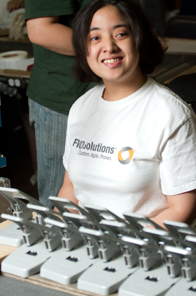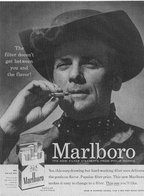
A little over a month ago, I completed a development project for FVO Solutions, a social enterprise that creates jobs for people with barriers to employment. The experience has fundamentally changed my understanding of what it means to have a disability, or, more accurately, what it doesn’t mean. Just because you cannot speak doesn’t mean you cannot write. Just because you cannot see doesn’t mean you cannot feel. In fact, you may be better with your words or hands, and outperform “normal” people, despite or precisely because of your barrier. Put differently, if it wasn’t for an observable disability, society might label you talented instead. Think about that as you read the next paragraph…
Since working here, I have met Gina, a blind woman who excels with tactile tasks…and, incidentally, is amazing on the phone. Michael, who effortlessly remembers thousands of baseball scores by heart, and might spot tiny mistakes in ‘the numbers’ you and I wouldn’t find – even if we were looking. And of course Alex, one of their many nonverbal employees whose phenomenal work ethic makes the social enterprise turn out thousands of high-quality hand assembly, packaging and fulfillment jobs day in and day out.
But that’s just the tip of the iceberg. Unlike my initial perception of this being simply a sheltered workshop – a place that employs people with disabilities in a safe and customized environment – FVO Solutions is organized as a logistics and sales gateway to major retailers and big box stores, including, for example WalMart, Target and Big Five, as well as US government and military outlets worldwide. With a modern fleet of trucks, FVOS picks up their customers’ jobs directly at the LA and Long Beach ports or anywhere else in Southern California. And then, (after your manufacturing, assembly and packaging is complete and your product is ready for retail) they deliver or ship locally, or by common carrier worldwide. And if they cannot build or assemble your product 100% in-house, they reach out to a local contract manufacturing network of fabricators, die casters, injection molders, metal stampers, etc. – a network built over the past 49 years. As the people at FVOS like to say: “We’re not your father’s social enterprise”. http://www.fvosolutions.com/
What does all of this have to do with reshoring, i.e. bringing outsourced jobs back to the location from which they were originally offshored? Well, when was the last time you walked through a big box store and saw a product that you, a member of your family, or someone in your community had a hand in producing? When was the last time you said: “Look at that cosmetics kit. I wonder if Alex put that together…?”
Historically, the biggest driver behind outsourcing or off-shoring has been labor cost…and the perception that if US business could just get labor costs down, US business will be able to compete better, domestically and globally. The reality that is settling in however is that total cost of ownership is dependent on many more factors than competitive labor rates – factors such as lead time, IP risk, inventory management, mass customization/ rapid change opportunities, consumer proximity and, of course, energy and transportation costs.
Today, many companies feel that reshoring will curb those losses – even if that means paying more for US labor. But are US labor cost really that much higher? Not necessarily…if you engage people with barriers to employment. In other words, you may get all the above benefits of reshoring, provide an incredibly valuable service for your community, label your products “Made or Assembled in the USA”…and still keep your labor costs down. Now that’s doing well by doing good!
So allow me to coin a new term: Social Reshoring
Social Reshoring (def.): The practice of bringing outsourced labor back to the location from which they were originally offshored and create price competitive jobs in our own communities: for veterans, wounded warriors, at-risk youth, people with disabilities and others with barriers to employment.
Now, to make social reshoring economically attractive, organizations such as FVO Solutions are structured as both a for-profit and not-for-profit…and at the intersection of these two models is where a social enterprise emerges. Obviously, the model is attractive to individual donors, foundations and government agencies who want their funds to be a catalyst – instead of just a money sink. But here is where the magic really happens: given said support, FVOS can pretty well guarantee a globally competitive labor rate on US soil. That’s right, our people economically hand assemble, package and ship your goods…and everybody turns a (tidy) profit.
At FVOS, many of the business partners become so inspired by the work they do that they become “funders” themselves – donating industrial equipment, trucks and even our building in Pasadena, i.e. resources that then further enhance the competitiveness of local social enterprise.
There you have it: Enterprise revenue plus donations plus government funding support: three revenue streams conspiring together to deliver competitive global market advantages locally…while enabling our most marginalized population segments to provide true value to our businesses and communities and lead a productive life.
So, all you entrepreneurs, marketers, general managers and operating officers: let’s take “Made in the USA” one step further – let’s make it social!
Embrace Social Reshoring, that is, consciously think through the job tickets you have on your desk (offshore or otherwise) and then assign every task that an American with a disability can do…to an American with a disability. Your community, your pocketbook – and your brand – will be the better for it.
And make no mistake: Workers with barriers are competitive, do a quality job, love what they do, want nothing more than help your business excel…and get paid for doing so. If Alex could tell you, he would.




 RSS Feed
RSS Feed
